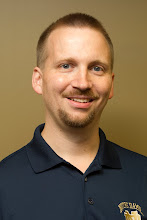- Positively wonderful opening note / tutorial. The organizers (Li and Morley) asked Zoltán Turányi from Ericsson to give a nice over of emerging problems in cellular networks. It was a nice twist that I think served as a good foundation for the rest of the day. I am not sure this is viable at a general conference (versus say a key note) but it worked well for the workshop.
- I was a bit less sanguine about the Open Radio work by Sachin Katta from Stanford. They had a wicked cool paper at the core SIGCOMM conference but it felt a bit like cognitive radio redux. That being said, pulling off full speed 802.11n with TI + USRP goodness is pretty awesome and I have to give them serious props for that. We will certainly have to do a bit of looking into the TI C66x DSP that their group had been using.
With that, we had a small break for coffee though we were by far running late. It was then that we realized that HotSDN had 180 attendees (wow!). The good news was that we got back on time in fairly short order for the workshop.
- Neat paper on Buffer Bloat presented by Sue Moon of KAIST who was subbing for Rhee from NC State. Bummer was that Sprint was by far one of the worst violators of Buffer Bloat. Evidently they have an upcoming IMC paper examining tweaks to TCP to try to improve things. Amusing anecdote of noting that AQM (Active Queue Management) is doomed out of the gate which I think is pretty much the community consensus.
- Two papers by AT&T on the core of their network primarily from a modeling perspective. Both were invited and some neat graphs on RNC / tower performance with regards to TCP performance.
- Needed more coffee for my talk and I realized I cut perhaps one too many slides in the interest of time. Post lunch + jet lag means a far less than impressive talk. Evidently Shu (my student) taped it but I'm not sure I will be adding it to YouTube any time soon.
- KK Yap had a nice bit about using multiple adapters to get better performance. They used an underlying Linux virtual switch on Android to allow one to fuse together multiple adapters and derive better performance. He did a nice job presenting his talk.
- Neat work on multi-path TCP definitely getting into the firm weeds, sort of a different perspective taking the standards route for multi-path TCP rather than the bit more of ad hoc approach of the Stanford talk.
- The session wrapped up with a talk by Suman Banerjee about their wireless bus work. Very cool and some interesting enterprise level problems when you have numerous buses / data plans to manage. Definitely problems that most academics are not pondering but are likely to be quite important at a macro level. Very impressive with how far the bus work has come from several years back when he had presented it visiting us at ND. Well done guys.
The workshop wrapped up with a panel discussing various issues / open items for cellular networks. The poor panelists barely got in their slides before we started discussing each particular person's results. The net result was that Li did not get a huge amount of time to go over his thoughts on a cellular SDN which was a bit of a bummer but the back and forth on the panel was excellent.
All in all, it was a nice workshop. Quite well attended (though not bursting like HotSDN). Well done Li and Morley!

No comments:
Post a Comment